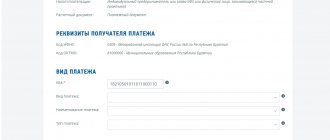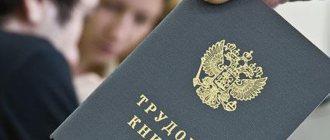Simplificationists who choose “income minus expenses” as their object at the end of the year may receive a negative result from their work. But a loss does not guarantee them complete tax exemption. If there are incomes in the book of income and expenses during the tax period, and even if the amount of expenses significantly exceeds them, taxation still cannot be avoided.
Let's take a closer look at how the “simplified” tax is calculated for unprofitable activities if expenses exceed income under the simplified tax system with a “income-expenditure” object.
Unprofitability of the enterprise
When talking about the losses of an enterprise, it is customary to separate two very important concepts (see table).
| Concept | Explanation |
| Accounting loss | When calculating it, the real results of entrepreneurship are taken into account. In this case, all proceeds from the activity and expenses incurred as a result of it are taken into account. |
| Tax loss | It differs from an accounting loss in that when calculating it, not all types of income and expenses are taken into account, but only those that “simplified” can recognize in accordance with the Tax Code of the Russian Federation. |
Note that not all entrepreneurs choose the option of paying tax according to the simplified tax system on income reduced by expenses. Some people opt for a simpler option from an accounting point of view. So, if you choose to pay tax exclusively on income, then the question of whether to pay the simplified tax system can be answered unequivocally: yes, always.
This is due to the fact that such “simplifiers” do not display their expenses in tax accounting. And as a result, it is impossible to come to a loss. If a company or individual entrepreneur works on the simplified tax system “income minus expenses,” then it makes sense to understand the situation of receiving a loss.
Let's consider this situation.
Reasons for the surplus
A state budget surplus in Russia may arise as a result of:
- Increase in the cost of hydrocarbons. A special feature of the Russian economy is its strong dependence on oil and gas prices. The export of these energy resources accounts for almost half of the state budget revenue. When the budget is formed, the current cost of hydrocarbons is taken as a basis. If their cost increases sharply, then the revenue side of the budget also increases, and this sharply increases the surplus.
- Artificial reduction in government funding for social and other projects.
- Increased taxation of individuals and legal entities.
- Increase in customs duties.
Impact of loss on simplified tax
If your business's expenses on the simplified tax system exceed its income, you don't have to make an advance payment for the corresponding periods. This applies to a quarter, half a year and nine months. But in case of a loss at the end of the whole year, the situation is somewhat different.
There is a concept of minimum simplified tax. Its size is equal to one percent of only income for the entire year. You will have to pay it even if the activity is generally unprofitable throughout the year.
For more details, see “Minimum tax on the simplified tax system in 2016.”
Keep in mind: from 2021 there will be no separate BCC for the minimum tax on the simplified tax system “income minus expenses”. see also
If you did not take into account the loss received in the previous year, then its value can be used to reduce the tax base in the current or subsequent periods. This allows you to reduce the amount of profit received by the amount of losses that were received in the previous year. You can also take into account losses that occurred at least a few years ago.
Please note that advance contributions to the simplified tax system do not depend on losses incurred in previous years. They will still have to be done, because the negative effect of other years can only be taken into account after summing up the results of the entire year.
We also remind you that a past loss can reduce the simplified tax this year only if it was received using the simplified tax system “income minus expenses.” If you changed the object of taxation, then you will no longer be able to take into account previous losses.
Comments
Sergey 04/13/2016 at 10:21 am # Reply
What to do?
Registered an individual entrepreneur on 01/28/16, bought a vending machine (snack) 160 thousand rubles + 10 thousand delivery. Paid rent 2.5 thousand rubles. I bought 30 thousand products. Installed it on 03/04/16. After working for the month of March, on 03/31/16 I made a profit of 12 thousand rubles. 202,500 rubles expenses, 12 thousand income. How to fill out a declaration??? or submit a “zero return?”
Natalia 07/08/2016 at 08:41 # Reply
Sergey, the simplified taxation system declaration is submitted once a year, based on the results of the previous year, until April 30 of the next year. Those. You will submit a declaration in 2021, for 2021. If there is income, then this is no longer a zero declaration, but a regular one. Don’t forget to pay your contributions to the Pension Fund and the Federal Compulsory Medical Insurance Fund. They are paid regardless of whether you have a profit or not.
How to confirm your losses
When, under the simplified tax system, expenses are greater than income , the Tax Code provides for the possibility of taking into account losses incurred during the year to reduce the tax base for another 10 years. If this period has passed, then it will no longer be possible to take into account the loss.
If you wrote off all your losses for a certain reporting year, then for another four years you will have to keep all the documentation confirming the legality of such actions. In the event of an inspection, you are required to provide the inspector with the necessary information.
You should store not only supporting documents, but also information on the amount of loss for all tax periods. To prevent inspectors from having questions and difficulties, it is better to systematize such papers and files and place them in separate folders.
Also see “STS since 2017: how the limits on income and fixed assets will increase.”
Read also
21.11.2016
Commodity surplus
Surplus of goods is a situation in which goods for some reason are not sold, but remain in stores or warehouses. This indicates that demand is lower than supply, that is, there is a supply surplus. There are several reasons that cause this imbalance:
| Cause | A comment |
| Overpriced | The cost of goods can be inflated either by manufacturers who have set a selling price that is much higher than the cost of the goods, or by intermediaries - an intermediate link between manufacturers and end consumers |
| Incorrect planning (overestimating expected demand) | For example, by the summer, a manufacturer of inflatable toys produced inflatable mattresses. The summer turned out to be rainy and not a beach one, mattresses were not sold out, a surplus formed |
| Ineffectiveness of marketers | The marketing department did not work effectively: there was no advertising (or it was of low quality), consumers were not sufficiently motivated to purchase the product, etc. |
Eliminating a commodity surplus means eliminating the factors that caused it:
- reduction in the cost of goods. At the production stage - by reducing the cost of production or the selling price (which will reduce the income of manufacturers). At the implementation stage, reduce the “cheating” of intermediaries. The cost of goods already purchased by an intermediary for sale can only be reduced by reducing the intermediary percentage. The main form of reducing the cost of surplus goods is various promotions and a system of discounts;
- careful planning (reduction) of product output for the following periods, taking into account the existing surplus;
- increasing marketing efficiency (replacing employees or improving their qualifications).
There are many ways to get rid of excess goods or material assets. But they need to be directed competently and this is a necessity, since an excess of inventory requires significant resources: storage in a warehouse, freezing of funds, inventory and accounting, etc. Excess of goods poses the greatest danger for an enterprise when it is just entering the market or is going through a period of survival, that is, at times of greatest need for resources and funds.
Existing cost control mechanism
Article 86.2 of the Tax Code establishes a list of persons who are obliged, no later than 15 days after registration of a transaction, to send information about the registered transaction to the tax authority at their location. This list includes:
- bodies carrying out state registration of rights to real estate and transactions with it;
- authorities that carry out registration of motor vehicles;
- persons registering transactions with securities;
- notaries certifying purchase and sale transactions of cultural property;
- authorized persons and organizations registering transactions with gold bullion.
The form of notification of the tax authority by an authorized person is established by Appendix 1 to Order of the Ministry of Taxes of the Russian Federation dated December 2, 1999 No. AP-3-08/379 “On approval of document forms required when conducting tax control over the expenses of an individual.”
Along with the notice, the authorized person is obliged to submit to the tax authority:
- an extract from the unified state register, a purchase and sale agreement - for transactions with real estate;
- a copy of the invoice certificate, the purchase and sale agreement (if any), an extract from the vehicle registration register - for transactions with a motor vehicle;
- purchase and sale agreement - for transactions with securities;
- purchase and sale agreement, certified in the prescribed manner - for transactions with cultural property;
- purchase and sale agreement - for transactions with gold bullion.
Ignoring this obligation by an authorized person shall entail the imposition of a fine on him under Art. 126 of Part 1 of the Tax Code in the amount of:
- 5000 rubles - for organizations,
- 500 rubles - for individuals, including individual entrepreneurs and private notaries.
Having received information about the transaction, the tax authority analyzes the compliance of the expenses made by the individual with the income declared by him for the previous tax period, i.e. for the previous calendar year (it is the calendar year that is the tax period according to Article 216, Part 2 of the Tax Code for personal income tax ). If it is discovered that expenses exceed income received for the previous calendar year, the tax authorities are obliged to draw up a statement of discrepancy and, within a month, send a written request to the individual to provide explanations about the sources and amounts of funds that were used to purchase property.
It will take five years
— Do the municipal enterprise and the administration, as its founder, have a program that would describe what will be done for this money?
— The YATEK municipal unitary enterprise has a repair program for a year. Regarding long-term plans, my answer is this: we have an idea of what we want to do. But we rely on the financial capabilities of the enterprise, city and region. And we can plan something only within the budget year.
According to our estimates, it takes at least five years to bring CHP equipment into compliance with regulatory requirements. So that we can say: that’s it, now there will be no accidents at the station.
— Has the Siberian Generating Company abandoned the Yarovskaya CHPP?
— No one has yet approached the city administration with the initiative to transfer into concession the utility complex that serves the YATEK Municipal Unitary Enterprise. This is a troublesome business.
Yarovoe.
www.instagram.com/besedin
Illegal tricks of tax authorities
The taxpayer has the right (subclause 1, clause 1, article 21 of the Tax Code) to receive from the tax authority free information about acts containing the norms of legislation on taxes and fees, as well as about the rights and obligations of the taxpayer, the powers of tax authorities and their officials. A taxpayer whose expenses are subject to tax control has the right to receive from the tax authority comprehensive, truthful information about the content of his rights and obligations, as well as about the regulations establishing these rights.
Unfortunately, often a tax authority official, deliberately or due to insufficient qualifications, misleads the taxpayer regarding his rights and obligations and the content of relevant regulations, providing distorted information.
The most common trick is to justify the position of an official by citing the provisions of Order of the Ministry of Taxes of the Russian Federation dated December 22, 1999 No. AP-3-08/408 “On approval of the regulations on the procedure for conducting tax control over the expenses of an individual.” However, as indicated in Letter No. 4244-ER dated May 31, 2000, this Order, as not meeting the requirements of the legislation of the Russian Federation and not registered by the Ministry of Justice, was canceled by Order of the Ministry of Taxes of the Russian Federation dated June 13, 2000 No. BG-3-08/225 “On the cancellation of the Order of the Ministry RF on taxes and fees dated December 22, 1999 No. AP-3-08/408.” And it should be taken into account that no other by-law regulating in detail the procedure for conducting tax control over the compliance of an individual’s expenses with his income has yet to be adopted.







